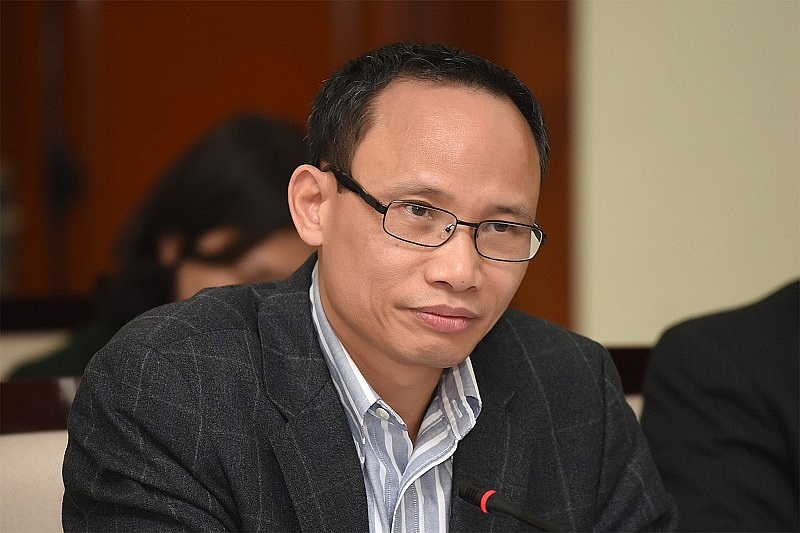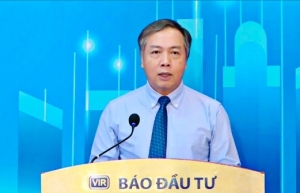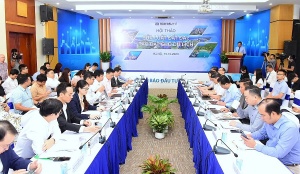Recommendations to create more land for tourism
 |
| Dr. Can Van Luc, Member, National Fiscal and Monetary Policy Advisory Council, photo baodautu.vn |
However, besides the results achieved, the tourism industry still has some limitations in capacity and service quality. Among those is that the industry’s development policy has not yet created adequate legal space to engage investment and develop infrastructure commensurate with tourism potential.
In reality, priority policies and increased investment in tourism infrastructure have been directed throughout many documents of the Party and state as well as the local authorities. Typically, over the past 5-6 years, they have focused on developing tourism to become a key economic sector. Resolution No.82/NQ-CP dated May this year identified and aimed to implement solutions to develop the industry effectively and sustainably.
This included strengthening the attraction of investment in tourism development, promoting public-private cooperation, and mobilising domestic and international resources to invest in developing related infrastructure.
However, these policies have not yet been realised into unified and specific solutions to develop tourism infrastructure in a synchronous and sustainable manner.
There are also some recommendations that can be made for the revised draft Land Law in this regard. Firstly, a mechanism for land allocation and land lease through land repossess for tourism, entertainment, and recreation development projects for socioeconomic development purposes should be added into Article 79 of the draft. It should especially consider large-scale initiatives located in difficult areas such as mountainous areas and islands.
This addition can help remove difficulties and help investors participate in bidding for projects where the government repossesses land. However, the draft revised law also needs to clarify the criteria for identifying what large-scale projects are and their impact on the socioeconomic development and security of society.
Second, a mechanism for leasing and transferring commercial and service land use rights for development should also be added to Article 121 of the revised draft Land Law to remove bottlenecks of the tourism and resort real estate sector, thereby creating conditions to attract more resources for infrastructure funding.
The third aspect should involve legislating and strengthening sanctions for cases of intentional violation of laws on planning and investment in tourism development, to limit speculation, waste of land, and limited disputes.
In the short term, the National Assembly and the government continue to promulgate policies to support tourism investment businesses in terms of capital and market access, tax, fee, and rent reduction with a longer level and duration of support to further mobilise investment resources for tourism infrastructure.
They can also continue to drastically implement Resolution 82 in research and promulgate solutions to promote public-private partnerships (PPPs), and mobilise domestic and international resources to invest in developing facilities, infrastructure, and development solutions for sustainable tourism.
In the medium and long term, relevant legal provisions should be revised towards the direction of building attractive and competitive policies on land, finance, electricity, and water for development and tourism projects.
Besides this, the current annual rate of budget spending on tourism should be increased from 1.4 to up to 4 per cent of total state budget spending, like some countries in the region. This effort will help ensure increased competitiveness of the industry and improve the efficiency of public investment capital.
The government, meanwhile, can consider researching and implementing direct public investment in infrastructure of tourism development areas, key infrastructure, and regional links, preserving relics and culture heritages.
Last but not least is to speed up the progress of infrastructure projects, especially the North-South Expressway, airports, and railways, to remove obstacles in PPPs. This will be an important driving force contributing to promote socioeconomic growth in general and the industry in particular.
As well, more serious sanctions for cases of intentional violation of laws on planning, investment, and tourism development should be applied to limit speculation, reduce waste of land and disputes.
 | Proposed land law amendments seek to spur Vietnam tourism Some proposed changes aim to create a dedicated land fund for tourism development, improve land requisition rules, and strike a balance between national interests and the growing tourism sector, promoting infrastructure investments. |
 | VIR seminar addresses Land Law amendments VIR's seminar shed light on the challenges and the importance of well-defined legal frameworks for the tourism and resort real estate market, which currently faces deceleration despite substantial growth. |
 | Draft revised land law must ensure space for tourism goals According to the 2017 Law on Tourism, tourism is related to activities of people travelling outside their regular place of residence for a period of less than one year for sightseeing, relaxation, entertainment, learning, exploring, or other eligible purposes. |
What the stars mean:
★ Poor ★ ★ Promising ★★★ Good ★★★★ Very good ★★★★★ Exceptional
Related Contents
Latest News
More News
- Construction firms poised for growth on public investment and capital market support (February 11, 2026 | 11:38)
- Mitsubishi acquires Thuan An 1 residential development from PDR (February 09, 2026 | 08:00)
- Frasers Property and GELEX Infrastructure propose new joint venture (February 07, 2026 | 15:00)
- Sun Group led consortium selected as investor for new urban area (February 06, 2026 | 15:20)
- Vietnam breaks into Top 10 countries and regions for LEED outside the US (February 05, 2026 | 17:56)
- Fairmont opens first Vietnam property in Hanoi (February 04, 2026 | 16:09)
- Real estate investment trusts pivotal for long-term success (February 02, 2026 | 11:09)
- Dong Nai experiences shifting expectations and new industrial cycle (January 28, 2026 | 09:00)
- An Phat 5 Industrial Park targets ESG-driven investors in Hai Phong (January 26, 2026 | 08:30)
- Decree opens incentives for green urban development (January 24, 2026 | 11:18)

 Tag:
Tag:





















 Mobile Version
Mobile Version